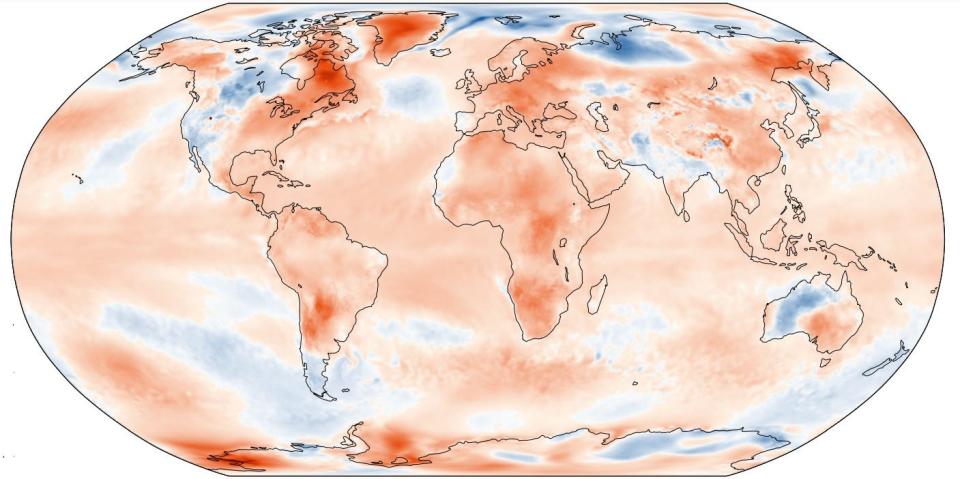It's hot, so hot in here: Warmest March on record was part of a 10-month streak
This was the real March madness.
March 2024 was the warmest March ever recorded globally, scientists reported Tuesday, in data that goes back to before the Civil War. It was also the 10th month in a row that was the hottest on record, itself an ongoing record-breaking streak.
In addition, "the global average temperature is the highest on record, with the past 12 months being 1.58 degrees (Celsius) above preindustrial levels," said Samantha Burgess, deputy director of the Copernicus Climate Change Service, which released the report.
The primary cause of the exceptional heat was human-caused greenhouse gas emissions, the service said. Other factors pushing up temperatures include El Ni?o, the natural climate pattern that warms the surface waters in the eastern Pacific Ocean.
Heat records fall: Scientists are puzzled and alarmed in 2024. Here's what to know.
Long-term trend is concerning
"It's the long-term trend with exceptional records that has us very concerned," Burgess said. "Seeing records like this – month in, month out – really shows us that our climate is changing, is changing rapidly."
Scientists don't fully understand why recent temperatures are up so much more than projected. The year 2023 was the planet's hottest year in global records that go back to 1850. It was also warmer than it should have been, experts say, and they're not sure why.
"It’s humbling, and a bit worrying, to admit that no year has confounded climate scientists’ predictive capabilities more than 2023 has," wrote NASA climate scientist Gavin Schmidt in an opinion piece in March in the journal Nature.
March warmth was worldwide
In addition to Europe, which had its second-warmest March on record, temperatures were most above average over eastern North America, Greenland, eastern Russia, Central America, parts of South America, many parts of Africa, southern Australia and parts of Antarctica, Copernicus said.
In the U.S., March temperatures were above average across much of the country, while below-average temperatures were seen in small pockets of the West and Southwest, the National Oceanic and Atmospheric Administration said in a Monday report. Overall, it was the USA's 17th-warmest March in the climate record.

Why is 1.5 degrees significant?
Although the global average temperatures in Tuesday's report are above the 1.5 Celsius (2.7 degrees Fahrenheit) threshold set in the landmark Paris Agreement, it's not yet seen as exceeding the goal because that is based on a long-term, consistent average rather than a measurement from any single month or year.
However, scientists agree the world needs to hold down the global increase in average temperatures to no more than 1.5 degrees Celsius over preindustrial levels. If temperatures go over that, especially over 2 degrees Celsius, scientists believe the global warming effects we're already seeing will become devastating.
Fossil fuel burning the cause
"The main driver of the warming is fossil fuel emissions," said Friederike Otto, a climate scientist at Imperial College London's Grantham Institute.
Failure to reduce these emissions will continue to drive the warming of the planet, resulting in more intense droughts, fires, heat waves and heavy rainfall, Otto said.
Burgess said that "stopping further warming requires rapid reductions in greenhouse gas emissions."
Federal scientists from NASA and NOAA will release their global temperature data for March within a few days.
Contributing: Reuters; Dinah Voyles Pulver, USA TODAY
This article originally appeared on USA TODAY: Warmest March on record comes as Earth continues (literal) hot streak
